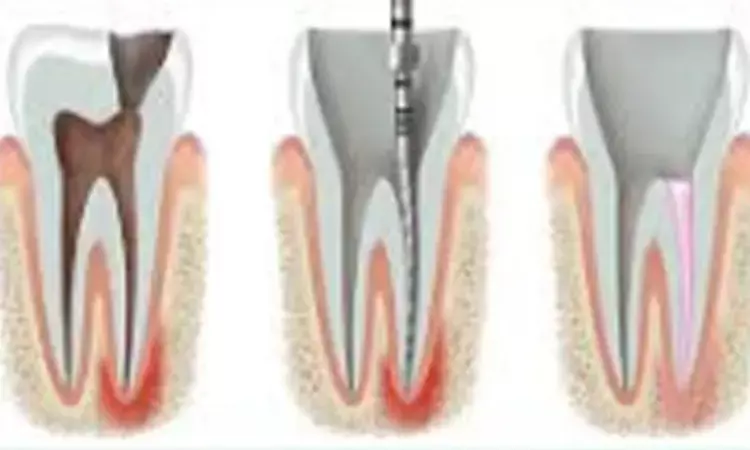- Home
- Medical news & Guidelines
- Anesthesiology
- Cardiology and CTVS
- Critical Care
- Dentistry
- Dermatology
- Diabetes and Endocrinology
- ENT
- Gastroenterology
- Medicine
- Nephrology
- Neurology
- Obstretics-Gynaecology
- Oncology
- Ophthalmology
- Orthopaedics
- Pediatrics-Neonatology
- Psychiatry
- Pulmonology
- Radiology
- Surgery
- Urology
- Laboratory Medicine
- Diet
- Nursing
- Paramedical
- Physiotherapy
- Health news
- Fact Check
- Bone Health Fact Check
- Brain Health Fact Check
- Cancer Related Fact Check
- Child Care Fact Check
- Dental and oral health fact check
- Diabetes and metabolic health fact check
- Diet and Nutrition Fact Check
- Eye and ENT Care Fact Check
- Fitness fact check
- Gut health fact check
- Heart health fact check
- Kidney health fact check
- Medical education fact check
- Men's health fact check
- Respiratory fact check
- Skin and hair care fact check
- Vaccine and Immunization fact check
- Women's health fact check
- AYUSH
- State News
- Andaman and Nicobar Islands
- Andhra Pradesh
- Arunachal Pradesh
- Assam
- Bihar
- Chandigarh
- Chattisgarh
- Dadra and Nagar Haveli
- Daman and Diu
- Delhi
- Goa
- Gujarat
- Haryana
- Himachal Pradesh
- Jammu & Kashmir
- Jharkhand
- Karnataka
- Kerala
- Ladakh
- Lakshadweep
- Madhya Pradesh
- Maharashtra
- Manipur
- Meghalaya
- Mizoram
- Nagaland
- Odisha
- Puducherry
- Punjab
- Rajasthan
- Sikkim
- Tamil Nadu
- Telangana
- Tripura
- Uttar Pradesh
- Uttrakhand
- West Bengal
- Medical Education
- Industry
Decision-making regarding root canal perforation improved by using CBCT scan: Study

A recent case study published in the Case Reports in Dentistry suggested that decision-making could be improved in the case of root canal perforation by using the cone beam computed tomography (CBCT) scan and other modern technologies.
Root perforation results in communication between the root canal system and the external tooth surface. When completing the last steps of the endodontic therapeutic protocol, all care must be taken to avoid accidents that may risk losing teeth. In clinical practice, pathological perforations are frequent. Iatrogenic root perforations may occur at any time in root canal treatment, during access cavity opening, root canal preparation, or post preparation. All these procedural operative errors may lead to treatment failure This study describes a conservative approach to surgical management of root canal perforation in maxillary lateral incisors.
A patient was referred for retreatment of a maxillary lateral incisor. Her chief complaint was discomfort in the buccal mucosa. Periapical radiography showed radiopaque material consistent with sealing material inside the root canal. A CBCT scan was acquired and revealed a gutta-percha cone outside the root canal, from the middle third to beyond the root apex. The imaging examination showed that the pulp cavity had not been affected.
Thus, the researchers took the clinical alternative of surgically managing the perforation by sealing with MTA, thereby avoiding endodontic treatment, and followed up with only clinical and radiographic control.
At the two-year follow-up, after the surgical procedure to remove the extruded filling material, the researchers observed bone tissue formation and positive response to pulp tests, without any clinical signs or symptoms. Root perforation is considered an unpleasant error in an operative procedure. Once a perforation is properly diagnosed, located, and sealed with biomaterial, a favorable prognosis is often achieved. MTA offered good sealing of the perforation, with promising results.
Thus, the researchers concluded that decision-making using the CBCT scan enabled us to adopt a conservative approach and favored more reliable treatment predictability.
Reference:
A Conservative Approach to Surgical Management of Root Canal Perforation by Régis Augusto Aleixo Alves et al. published in the Case Reports in Dentistry.
Dr. Shravani Dali has completed her BDS from Pravara institute of medical sciences, loni. Following which she extensively worked in the healthcare sector for 2+ years. She has been actively involved in writing blogs in field of health and wellness. Currently she is pursuing her Masters of public health-health administration from Tata institute of social sciences. She can be contacted at editorial@medicaldialogues.in.
Dr Kamal Kant Kohli-MBBS, DTCD- a chest specialist with more than 30 years of practice and a flair for writing clinical articles, Dr Kamal Kant Kohli joined Medical Dialogues as a Chief Editor of Medical News. Besides writing articles, as an editor, he proofreads and verifies all the medical content published on Medical Dialogues including those coming from journals, studies,medical conferences,guidelines etc. Email: drkohli@medicaldialogues.in. Contact no. 011-43720751


